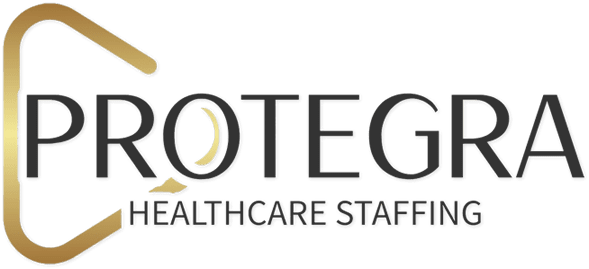Opportunities and Challenges for AI in the Medical Job Market

Artificial Intelligence (AI) is rapidly becoming a game-changer in the healthcare industry. Imagine a world where routine tasks are automated, allowing doctors and nurses to focus more on patient care. That future is now, thanks to AI technologies that are transforming the medical job market.
AI is already making a significant impact. For example, AI systems like IBM’s Watson Health are being used to analyze vast amounts of medical data, helping doctors diagnose diseases more accurately and quickly (McKinsey & Company). In fact, a recent report by the McKinsey Global Institute found that AI could automate about 15% of the work currently done in healthcare by 2030 (McKinsey & Company).
But what does this mean for the people working in healthcare? On one hand, AI offers incredible opportunities to improve efficiency and patient outcomes. On the other hand, it poses challenges such as job displacement and the need for new skills.
Opportunities Created by AI in the Medical Job Market
AI is revolutionizing the healthcare industry, bringing a host of exciting opportunities that are reshaping the medical job market. From enhancing efficiency to creating new roles, AI is opening doors to innovative possibilities.
Enhanced Efficiency and Productivity
One of the most significant benefits of AI in healthcare is the enhancement of efficiency and productivity. AI-powered tools can handle repetitive and time-consuming tasks, such as data entry and scheduling, allowing healthcare professionals to focus more on patient care. For instance, AI algorithms can quickly analyze vast amounts of medical data to provide accurate diagnoses, reducing the workload for doctors and speeding up the treatment process. A report by McKinsey Global Institute highlights that AI could automate up to 15% of the work currently done in healthcare by 2030 (McKinsey & Company) (McKinsey & Company).
New Job Roles and Specializations
The rise of AI is also creating new job roles and specializations within the healthcare sector. As AI technology advances, there is a growing demand for professionals who can develop, manage, and operate these systems. New roles such as AI specialists, data analysts, and machine learning engineers are becoming integral to the healthcare workforce. Additionally, existing healthcare professionals are finding opportunities to upskill and specialize in AI-related fields, ensuring they remain relevant in a rapidly evolving industry (World Economic Forum) (Nexford University).
Improved Patient Care and Outcomes
AI has the potential to significantly improve patient care and outcomes. By leveraging AI, healthcare providers can offer more personalized treatment plans and make more informed decisions. For example, AI can analyze a patient’s medical history, lifestyle, and genetic information to suggest the most effective treatment options. Moreover, AI-driven tools can continuously monitor patients’ conditions and provide real-time alerts to medical staff, ensuring timely interventions and better management of chronic diseases (Brookings) (McKinsey & Company).
Facilitating Research and Development
AI is also playing a crucial role in advancing medical research and development. AI-powered platforms can analyze vast datasets to identify patterns and insights that would be impossible for humans to detect. This capability accelerates the discovery of new treatments and the development of innovative medical technologies. For instance, AI has been instrumental in speeding up the research and development of vaccines and treatments during the COVID-19 pandemic (Harvard Gazette) (Korn Ferry | Organizational Consulting).
Challenges Posed by AI in the Medical Job Market
While AI offers numerous opportunities in the healthcare sector, it also presents several significant challenges. These challenges need to be addressed to ensure that the integration of AI into the medical job market is smooth and beneficial for all stakeholders.
Job Displacement and Workforce Redundancy
One of the primary concerns surrounding AI is the potential for job displacement. As AI systems become more capable of performing tasks traditionally done by humans, certain roles may become redundant. For example, administrative tasks such as data entry and appointment scheduling can be fully automated, potentially reducing the need for administrative staff (Datafloq) (BCG Global). Moreover, advanced AI diagnostic tools could reduce the demand for some specialist roles. The World Economic Forum predicts that while AI will create new jobs, it could also displace many existing ones, leading to significant workforce shifts (World Economic Forum).
Ethical and Privacy Concerns
The use of AI in healthcare raises several ethical and privacy issues. AI systems rely on large datasets, often containing sensitive patient information. Ensuring the privacy and security of this data is crucial to prevent breaches and misuse. Additionally, AI algorithms can sometimes exhibit biases based on the data they are trained on, potentially leading to unfair treatment or discrimination. Addressing these ethical concerns requires robust data governance and transparent AI development practices (World Economic Forum) (World Economic Forum).
Skills Gap and Training Requirements
The rapid adoption of AI in healthcare has highlighted a skills gap among healthcare professionals. Many existing workers may lack the technical skills needed to effectively use AI tools. Continuous education and training programs are essential to help healthcare workers adapt to new technologies. This need for upskilling can place additional pressure on both healthcare organizations and professionals, who must invest time and resources into acquiring these new competencies (World Economic Forum) (Nexford University). A report by Brookings suggests that substantial investment in training and reskilling programs is necessary to prepare the workforce for AI integration (Brookings).
Navigating the AI-Driven Medical Job Market
The integration of AI into the healthcare industry is undeniably transformative, offering numerous opportunities for efficiency, innovation, and improved patient care. However, this technological revolution also brings significant challenges that must be carefully managed.
As AI continues to evolve, healthcare professionals and organizations need to stay adaptable and proactive. This involves continuous learning and upskilling to keep pace with new technologies and ensuring that ethical and privacy concerns are addressed through robust governance frameworks. Collaboration between AI developers, healthcare providers, policymakers, and educators will be crucial in creating a balanced approach that maximizes the benefits of AI while mitigating its risks.
For job seekers, understanding the impact of AI on the medical job market is essential. Embracing new roles and specializations related to AI, such as data analysis and machine learning, can open up exciting career paths. At the same time, maintaining the human touch in healthcare—through empathy, patient interaction, and complex decision-making—will remain invaluable and irreplaceable by machines.
Healthcare organizations must invest in training programs to help their workforce transition smoothly into the AI-driven landscape. They also need to ensure their systems are updated and compatible with new AI technologies, facilitating seamless integration and interoperability.

